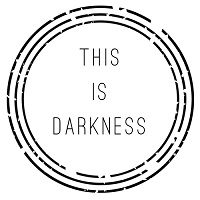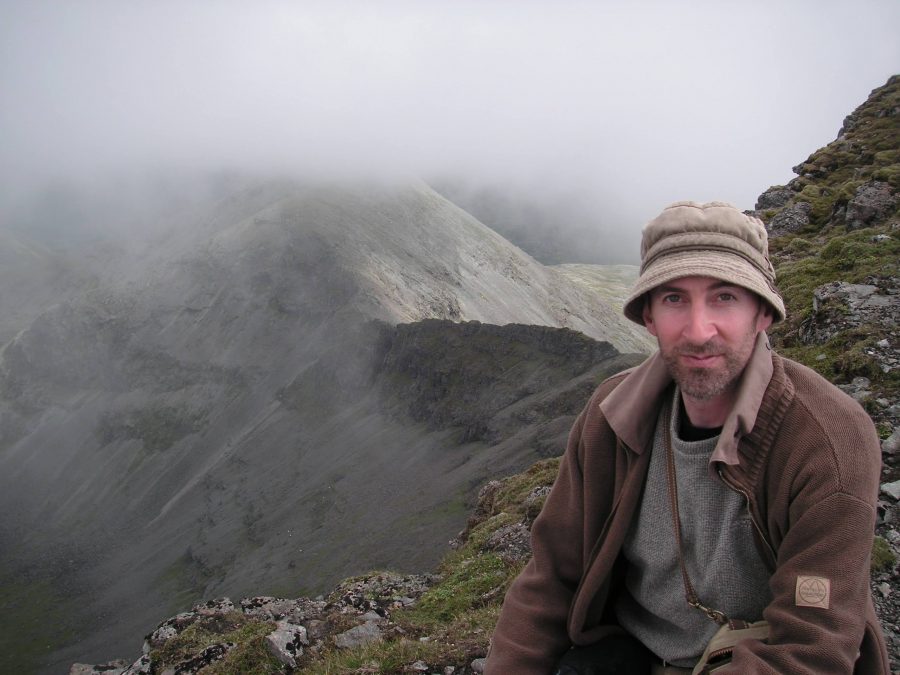From the first seconds of Exoplanetary, the new Cryo Chamber release by Ruptured World, I knew this was going to be a unique and incredibly entertaining album. I was not wrong. As I found out more about the man behind the project, its breadth and attention to detail became more understandable. I will preface the interview with this “about me” from Rennie’s Amazon page:
Alistair Rennie is author of the weird, sword and debauchery novel, BleakWarrior. He has published weird fantasy and horror fiction, essays and poetry in The New Weird anthology, Weird Tales magazine, Fabulous Whitby, Electric Velocipede, Mythic Delirium, Pevnost, Schlock Magazine, Horror Without Victims, Weird Fiction Review and Shadowed Realms.
He was born and grew up in the North of Scotland, has lived for ten years in Italy, and now lives in Edinburgh in the South of Scotland. He holds a first class Honours Degree in Literature from the University of Aberdeen and a PhD in Literature from the University of Edinburgh. He is a time-served Painter and Decorator and a veteran climber of numerous hills and mountains in the Western Highlands, the Cairngorms and the Italian Dolomites.
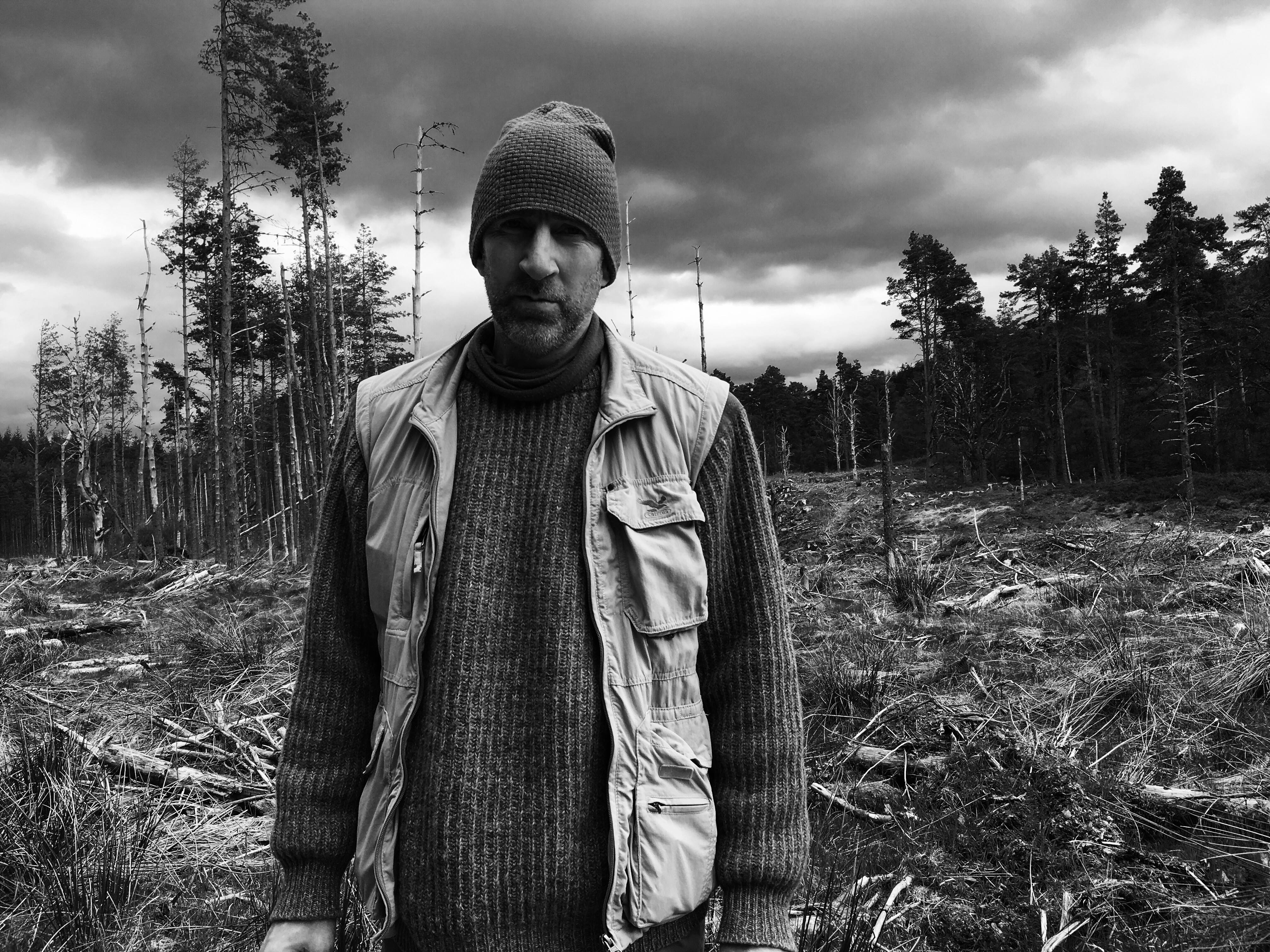 Interviewee: Alistair Rennie of Ruptured World
Interviewee: Alistair Rennie of Ruptured World
Conducted by: Michael Barnett
Michael Barnett: So, I want to get this stupid question out of the way first! While considering Exoplanetary for review, I felt some connections to The Day The Earth Stood Still (1951), googling it to make sure I had the correct title, I notice the main star is Michael Rennie. Any relation?
Alistair Rennie: That’s a great question! Unfortunately, the answer is no, we’re not related. Though my dad used to claim that we were. There’s a good chance I could be related to the alien Klaatu, however. The true star of the film.
Michael: On that same topic, what were some of the foundational influences on this project? Did you get inspiration from some of those old sci-fi films, like the one aforementioned?
Alistair: Yes, I did, as well as from elsewhere. I think it started off more influenced by 80s classics like Alien and John Carpenter’s The Thing, at least at the stage of writing, and with a strong Lovecraftian influence, too. But, when it came to recording, the older archaic broadcasting style came out in a very spontaneous and natural way, and I liked the way it blended unusually with the more modern electronic soundscapes and drones of the music.
Films like Them, War of the Worlds (also the musical version) and Forbidden Planet, and also the kind of narration you sometimes get in the old Hammer Horror films – they’re definitely in there.
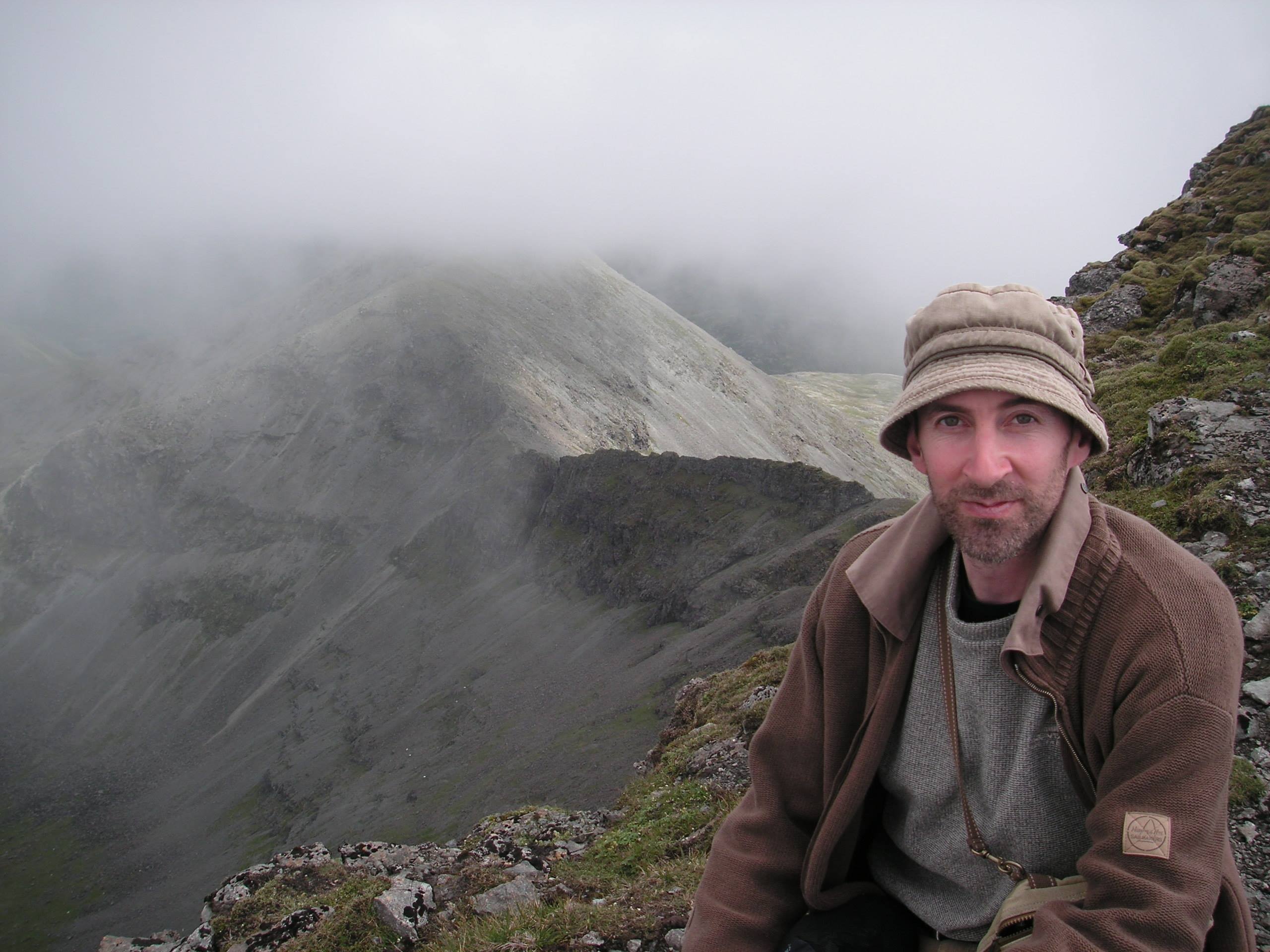
Michael: Before we get into your new album on Cryo Chamber, I thought you could tell us a bit about the writing side of your artistic journey. I am looking forward to reading BleakWarrior, which seems like it will be quite the tale, if the review snippets in your promo are any indication. I will assume the majority of readers here will be aware of your music before your writing. Would you like to tell us a short description of BleakWarrior in your own words?
Alistair: It’s a tricky one to describe because it was very experimental and incorporates a range of influences, including Sword and Sorcery, Manga/Anime, Cyberpunk, Elizabethan Revenge Tragedies, Ancient Greek and Celtic heroic verse, violent westerns, Classical Chinese Literature. It’s an attempt to blend the extremes of pulp and literary elements of fiction and turn them into something that combines sensationalist sex and violence with metaphysics. I tend to describe it as sword and debauchery, though that downplays some of the more philosophical content that might be in there. In some ways, it’s also a study of what happens when we act or exist outside of a moral framework. If I were to summarise it in strictly generic terms, though, I’d call it dark weird fantasy, with significant SF and horror characteristics thrown into the mix.
Michael: Is the world in this book something that you would think dark ambient fans will find interesting?
Alistair: Without wishing to be presumptuous, I think so, yes. There are some very dark elements to the story and its characters. It’s very bleak, as the title suggests. But there’s also some over-the-top mayhem and humour that’s more black metal than dark ambient. There are also parts of the novel that focus on the natural world and ideas relating to the metaphysics of physical nature, which I think is clearly a theme of dark ambient music on a number of levels. You can see that with many of the artists on the Cryo Chamber label.
Michael: Would you like to tell readers a few recommendations in case they are interested in reading your other works?
Alistair: I think dark ambient fans might be interest in what’s been called New Weird fiction and, in particular, in an anthology called the New Weird which features a chapter from what later became BleakWarrior. It’s a ground-breaking anthology in many ways and features writers like Michael Moorcock and Clive Barker, Brian Evenson, Michael Cisco, Jeffrey Ford, Jeffrey Thomas, KJ Bishop – authors who, I think, would be interesting to fans of dark ambient.
In my own case, I have a story that’s coming out later this year in an anthology called Mechanical Animals to be released by Hex Publishers. The story I’ve contributed, called “The Island Brushed By Ghosts”, is set in the northwest of Scotland and deals with subjects pertaining to the nature of existence, as well as nature itself. It’s more cerebral and less frenzied than some of the other stuff I’ve written. If you prefer the mayhem, though, I had a recent story in an anthology called “DOA III” which was released by Blood Bound Books. It’s a sort of surreal slash horror SF far future story. Very dark! But also with elements of humour.
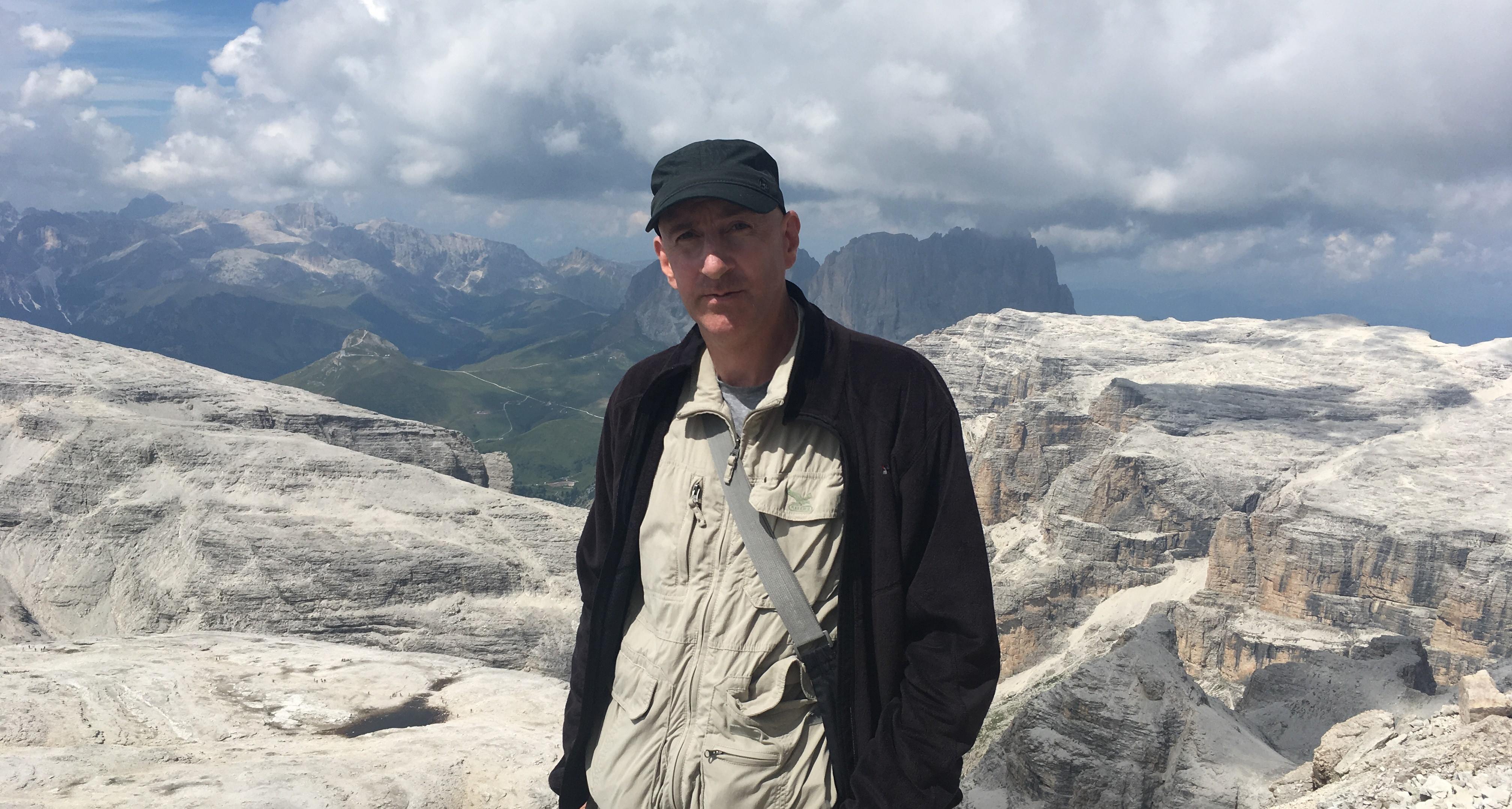
Michael: Which came first, your fiction writing or music production?
Alistair: That’s a very good question in the sense that they kind of evolved together. Music came first in terms of actually creating songs, finished works, as it were. With writing, I started off writing song lyrics and poetry. Fiction, writing stories, came much later, in my late teens, and writing stories that were actually completed and presentable came later still. But I believe that there’s a very close connection between music and writing, which is stating the obvious, really. Often, with writing, you’re striving to find harmony and rhythm, not only in the prose, but in the proportions of the story-telling, the narrative itself, to create a unified organic whole out of something (language) that is essentially chaotic and uncontrolled. Music does that, but with sounds instead of written symbols and utterances. And, of course, language itself is inherently musical.
Michael: How have these two elements been able to come together for you in the Ruptured World project? Did it originate as a story idea, or was it always meant to be this spoken-word blended with dark ambient format from its inception?
Alistair: I think what came first was the idea of using radio transmissions – which I find to be deeply mysterious, an area of activity where the technology and mystical elements of nature come together within the context of sound. I’ve always been fascinated by radio, especially by short wave radio. I remember when I was younger, before there was an internet or even home computers, I used to tune into voices and music from other parts of the world and found it incredibly exciting and amazing to be able to tap into the atmosphere of other countries. It still fascinates me today, even while it has been dramatically superseded by the internet.

Michael: Have you worked in other styles of music, or is Ruptured World your first foray into the musical world?
Alistair: I’ve been involved in music since I was twelve years old. I started off playing in a punk band and later played in an indie band that was fairly well known locally in the north of Scotland. And I also grew up playing folk music, which is not uncommon for musicians from Scotland, where there’s a very strong and innovative folk music scene. But, alongside all this, and right from the start, me and one of my friends had formed our own music project, which is very much the origins of what is now Ruptured World. We were influenced by bands like Bauhaus, the Virgin Prunes, the Cure, the Birthday Party, Japan and David Sylvian. There was just the two of us. We couldn’t find a third band member who shared the same tastes or ideas as us, so we couldn’t do a standard three or four piece thing. So we improvised. I had a Casio keyboard and we had guitars. We used all sorts of other things to generate noise, everything from biscuit tins to crash helmets, often using our voices as sound effects. And we also did spoken word. I still have old recordings on cassettes. More recently, we revived some of our old songs, did new versions of them using the technology of today. It was wonderful. The music is dark, sometimes haunting and melodic, but also low-fi and deliberately crude and primitive in terms of sound and style.
Michael: You performed all the vocal parts on Exoplanetary, and I assume Frontiers of Disorder as well? I, personally, love your vocal performance on these albums. Have you heard things like this in the past that inspired you? Or is this an idea you came up with to combine your loves of music and storytelling?
Alistair: There are definitely precedents for combining narration and music that have no doubt influenced me. There is nothing I can point to directly as an influence in this particular case. But I think War of the Worlds is certainly there, and audio recordings of poetry I’ve listened to over the years. And some of David Sylvian’s music where music and spoken words are combined. I also recall an old album a friend of mine had, one of those Dungeons and Dragons albums they used to produce, where a D&D story is narrated alongside the music. When you hear music and storytelling done together, I think it’s a very natural combination and, indeed, one that occurs every time we watch visual narratives realised in film. We forget that film is also an audio as well as a visual medium. I suppose, in many ways, that’s what Exoplanetary aims to be – a narrative and soundtrack conceived as a film but rendered and delivered through the medium of sound only.
Michael: Will you be continuing to work in this format on future releases?
Alistair: Yes, I think that’s a certainty. It’s a fascinating and extremely enjoyable challenge to integrate the musical and spoken word elements together. And trying to find ways of delivering the spoken narration, and do so effectively, is an extremely enjoyable if often difficult thing to aim for. And, being a writer, for me it’s just the obvious and natural thing to do, I think.
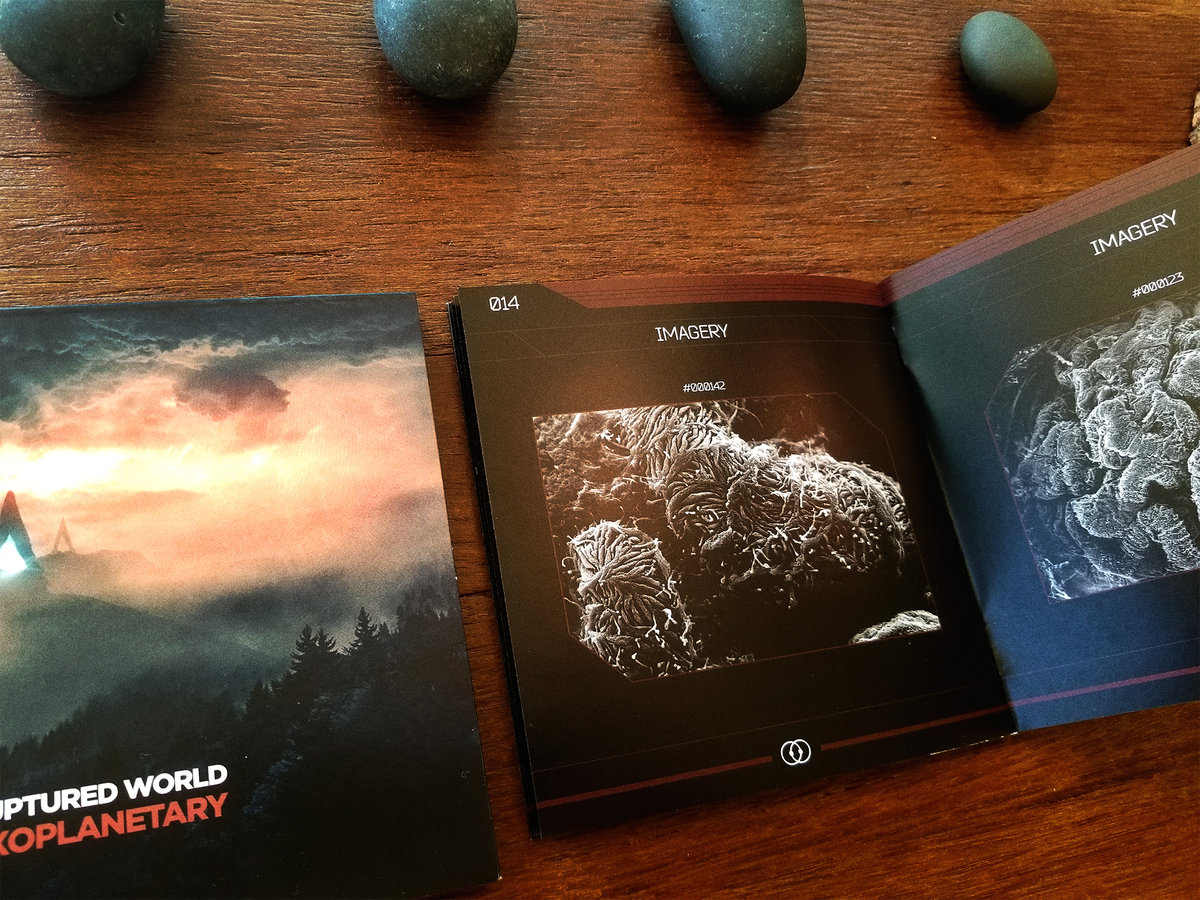
Michael: On the technical side, do you prefer working with digital soundscapes or do you incorporate modular synths or other such equipment into the mix?
Alistair: I tend to work principally with digital soundscapes combined with live materials gained from different sources and approaches, often through sampling where I take live recordings of instruments or objects and sounds derived from various places, and using them all as part of the digital tableaux. I have a very experimental approach, often unconventional, which is also true of my writing, and I try to explore those areas which are off-piste, as it were.
One approach I’m seeking to develop now derives from an interest I have in ideas relating to the “genius loci” or spirit of place. This is a literary term that, among other things, refers to the specific conditions or essence of a particular place or geographic location. I’m looking to do live recordings in specific locations using instruments and devices channeled and amplified through conventional hardware, then integrated into the soundscape of the purely digital environment. So, it’s trying to take the essence and evocation of a particular place and preserve it in the alternative digital universe, as it were. Not an easy thing, but something to aim for!
Michael: If you used many field recordings on Exoplanetary, what was the process like capturing these sounds? Were you able to work with some sound banks or did you take field recording expeditions?
Alistair: I use only field recordings, precisely for the reasons given above. It’s the fascination of the specificity of the sound and the particular place or conditions in which it was conceived and recorded. The active participation in the process from start to finish has a strong fascination for me. Not that I don’t think sound banks are useful. They are a valuable and viable resource. And, for me, the rule is to use anything and everything that works for the creation of the sound or music, so a certain magpie instinct is necessary for gathering sounds and adapting them to the creative process. But, in my own case, the fascination requires me to follow the goal of capturing a unique essence and trying to integrate it into the overall composition. I suppose that might sound somewhat airy fairy! But I think anything that injects your music with an additional sense of purpose is worth pursuing. It will ultimately lead to better results in being driven by the conviction of an established methodology.
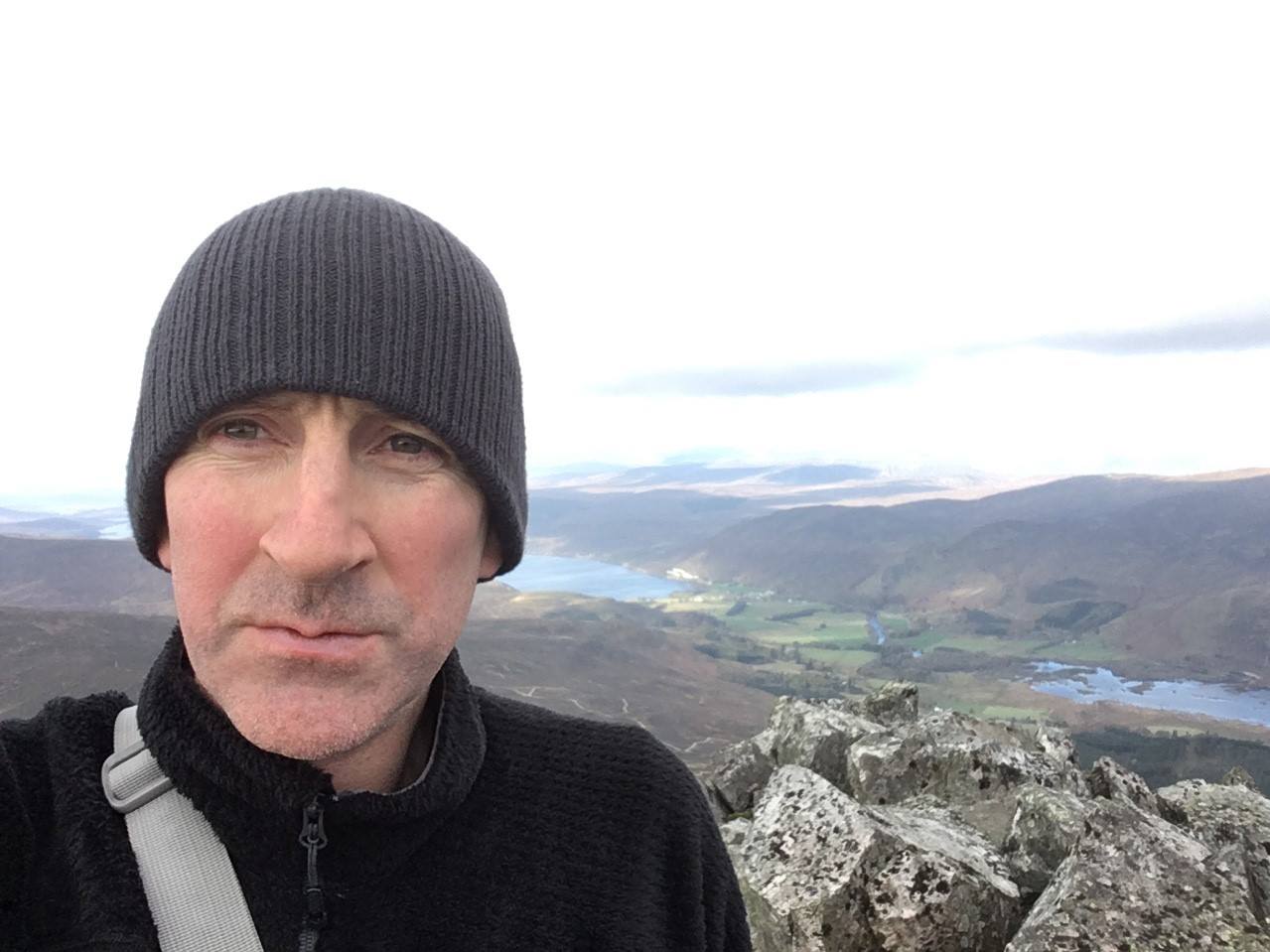
Michael: You’ve mentioned previously that you are an avid climber, it seems you’ve reached the summit of a good number of mountains around the world. Do you have a particular love of nature or is this more a physical drive for you? Do you think these excursions in nature lead to a deeper understanding of this dark ambient genre?
Alistair: The love of nature I think is the overriding passion, but I also relish the physical contact with the natural world and the physical effort it requires of you. Walking in mountains, in heightened terrain that changes your visual perspective of the world, is exhilarating for all sorts of reasons. You see the world, quite literally, in a different way, in the way it actually is. You see how the contours lie, how the habitable spaces are often actually small pockets or strips of land surrounded by hostile terrain. The close contact with weather conditions is always a great source of inspiration for me, and also the fear you feel when you’re faced with raw nature.
And I think these are facets of our experience which are very much at the heart of the dark ambient coterie of themes. Importantly, dark ambient doesn’t deal solely with the beauty and spiritual amplitude of nature, which are ably and admirably covered by many artists in the ambient and new age genres, for example. Dark ambient has a preoccupation with the more menacing aspects of nature, with its innate power and mysterious forces which, while crudely scientific, are nevertheless suggestive of something greater. And I think this is where we receive a sense of awe that causes us to look on nature with a primitive response we cannot summarise in words. Hence, we resort to music and sounds as a means of expressing it, which is very much the territory of dark ambient.
Dark ambient has a preoccupation with the more menacing aspects of nature, with its innate power and mysterious forces which, while crudely scientific, are nevertheless suggestive of something greater.
You find in old mythologies that humans, when confronted by gods, must shield their eyes because, if they don’t, they will be driven mad by the beauty and terror of the deity they look upon. I think dark ambient is a form of music that dares to look upon the gods and seeks to reiterate what it sees through the language of sounds.
Michael: What would be your dream project? If you could secure funding for any sort of project?
Alistair: It would have to be something that combined music with landscape. The Austrian musician, Manu Delago, recently led an expedition of 7 musicians into the Alps where they recorded music to be made into an album and film, called Parasol Peak. They recorded songs acoustically as they ascended through the various stages of their journey, and the results are incredible. So, doing something similar, but using electronic means of music production, would definitely be a dream project for me. And, to be honest, I don’t think it would require a huge amount of funds, so I may well go for it sometime soon! The problem would obviously be the need to generate power for electronic devices, but I’m sure there’d be a way.
Musician Paul Winter did a similar thing when he recorded music for an album in the Grand Canyon back in the 1980s. He and his musicians rafted down the river to find a spot to record music that would capture the echo generated by the canyon walls. Again, I would like to undertake a similar expedition with the objective of creating an electronic dark ambient extravaganza!
Michael: I’ll end on a bright note, how do you imagine Earth to look 100 years from now?
Alistair: Rain, rain, nothing but rain. Lots of gloom. No sunlight. Humans will evolve into vampires. A bit like Scotland during the summer, really.
Michael: Thank you very much for your time Alistair, I’ll leave the last words to you!
Alistair: Thank you, Michael! It’s been great to be in This Is Darkness. I very much wish you and your readership a prodigious abundance of lasting wellness!
Alistair Rennie’s Links
Ruptured World: Official Website, Facebook,
Bandcamp (Exoplanetary), Bandcamp (Frontiers of Disorder)
Alistair Rennie’s Publications: Official Website
